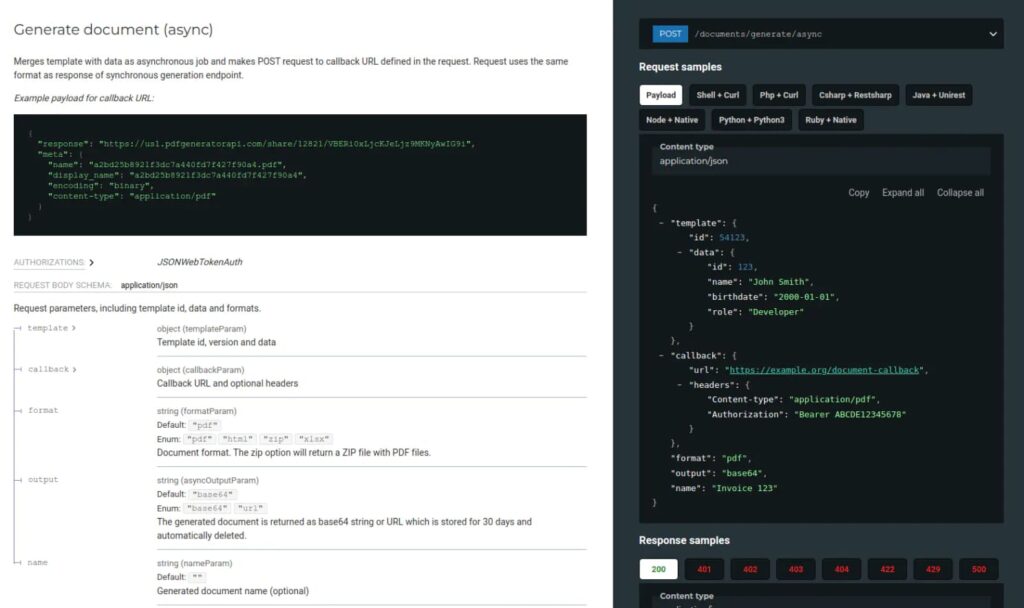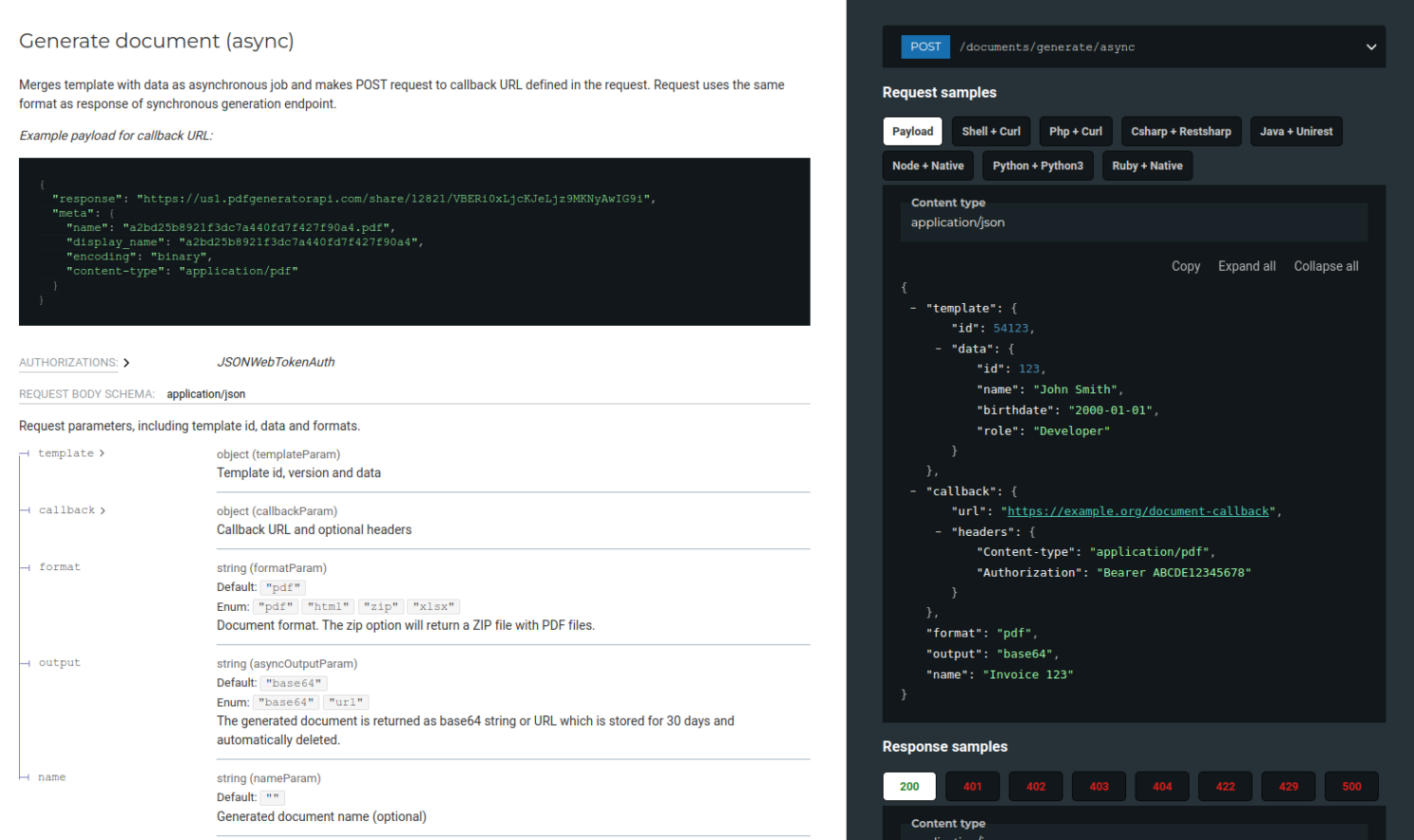It is time to reveal something big that we have been working on for a while. Today we released our API v4 to deliver more value and features to our existing and new users.
Our team has worked on the API v4 initiative for the past year and built the new API layer using the latest technology and best practices. This update allows us to introduce new API endpoints and functionality in the future.
So what’s new in API v4, you ask?
Asynchronous document generation
We have introduced new endpoints to generate documents as background jobs instead of synchronous tasks. In the asynchronous request, you can specify a callback URL, and once the document is ready, we will post the result to your system. This update will allow developers to build even more scalable document generation solutions.

HTML to PDF conversion
One of the most significant additions in API v4 is the HTML to PDF conversion endpoints, allowing you to convert HTML documents or URLs to PDF documents. This is one of the first of many new services and capabilities we will introduce to API v4 in the near future.
Improved request body structure
All POST and PUT requests now include parameters in the request body instead of in the query string. This change allows us to introduce new configuration options in the future. For example, you could specify the component configuration within the request, e.g. change font size, hide components, initiate page breaks etc. This will give developers even more flexibility when creating dynamic documents.
Additional endpoints to manage workspaces
It is now possible to manage your workspaces via API. Create, update and delete workspaces directly from your application.
Additional endpoints to manage documents
You can now fetch a list of generated documents stored in our service. These are documents that you have created with the output=url option. As you know, the URL output is active for 30 days, and then the document is deleted from our storage.
What’s next?
These are just the first steps towards a new chapter for PDF Generator API. We know that PDF is one of the universal document formats and thus the most preferred way to send business documents. Although PDF is human-friendly, it is difficult for machines to read it, which makes PDF not the best option for automated data exchange.
We are aware that manually digitalising your PDFs is time-consuming and error-prone. We want to help you and your users automate document generation and digitalisation.
To achieve this, we will introduce Electronic Data Interchange (EDI) and a hybrid document layer to our documents so that you can generate both human-readable PDF and machine-readable documents with a single API call. If you want to be one of the first to try out new API endpoints, please contact us at support@pdfgeneratorapi.com to set up a quick call to understand your EDI requirements.
PDF Generator API allows you easily generate PDF documents from pre-defined PDF templates with JSON data. Enable your users to create PDFs and manage their document templates using a browser-based drag-and-drop PDF editor to reduce development and support costs.

